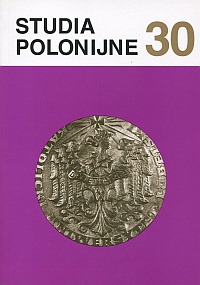On Poles in Armenia and Azerbaijan in the 19th and at the beginning of the 20th century
Main Article Content
Abstract
Caucasus, whose part are Armenia and Azerbaijan, in Poles' awareness is a country that is mythologized and full of contrasts. At the same time in the 19th century it came to the space of Polish martyrdom as a kind of „warm Siberia”. In that period many Tsarist army troops in that region to a large degree were composed of Poles. In Armenia many Poles commanded by Paskiewicz took part in capturing Erivan in 1827. Starting from 1830s numerous immigrants went there looking for a job. People living there even today remember Jan Łunkiewicz, a medicine doctor and a community worker, or Józef Chodźko, a geographer and one who climbed the Ararat mountain. In turn, Azerbaijan is a place where about 350 thousand Poles were exiled after the November Uprising. In the second half of the 19th century another inflow began, this time resulting from economic reasons. Baku became the greatest center where the Polish diaspora started to grow. Poles formed the elite, both financial and intellectual, of the region. Many of them also „discovered” the region, practically unknown in the non-existent Poland. After the First World War most Poles came back to the reborn Poland.

